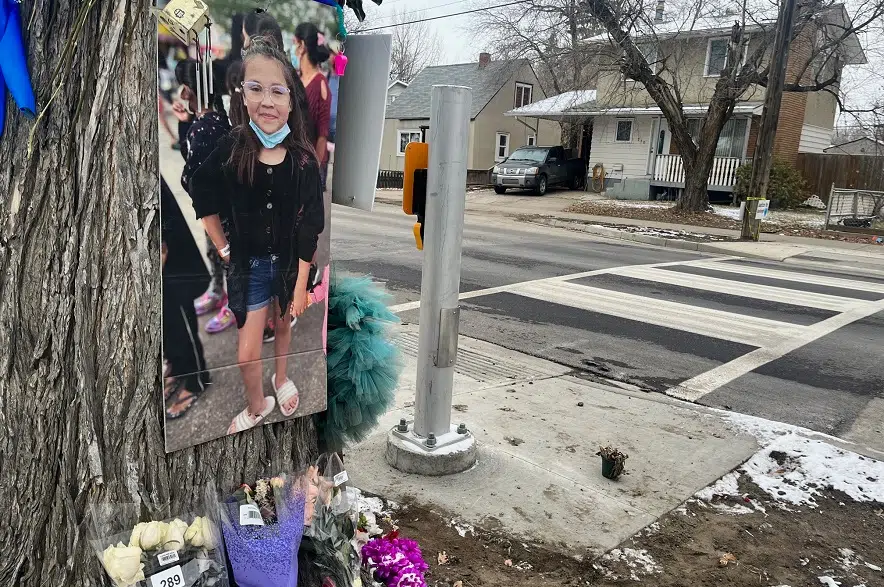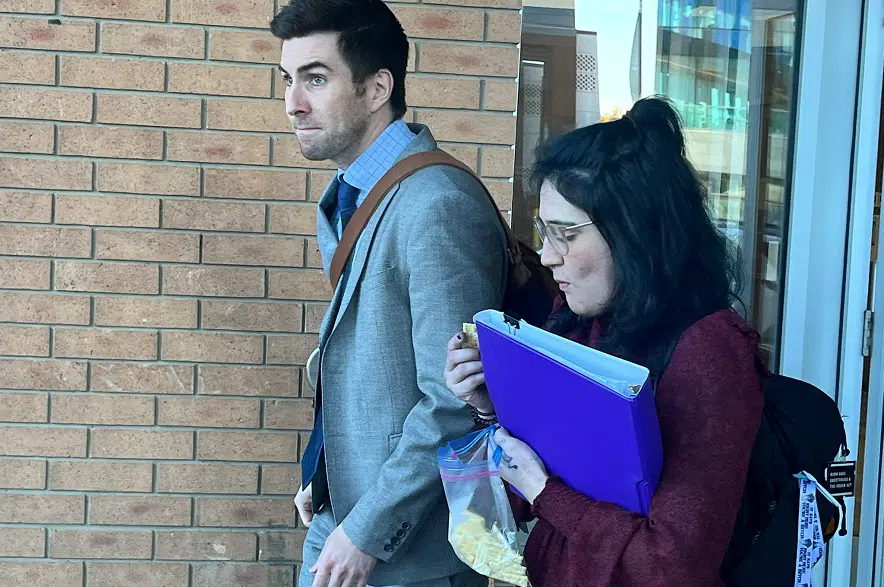A Saskatoon criminal defence lawyer is shedding some light on why criminal cases may see trial delays.
Brady Knight said the reasons court cases are delayed range from disclosure not being shared in a timely manner to witness testimony delays and even poor weather conditions.
In the high-profile case of Taylor Ashley Kennedy, who was charged with THC-impaired driving causing the death of a nine-year-old girl, Knight said Judge Jane Wooten had no choice but to stay the case according to the rules set out by the Supreme Court of Canada in its landmark R v. Jordan decision in 2016.
Read More:
- Time limits were meant to speed up justice. They also halt hundreds of criminal cases
- Cries of racism fill courtroom as judge stays impaired driving charge
- ‘Miscarriage of justice’: FSIN calls for appeal, new law in Kennedy case
In her decision, Wooten said the case had exceeded the 18-month limit from the time charges were laid.
The charge was laid six months after nine-year-old Baeleigh Maurice was struck and killed by the pickup truck Kennedy was driving on September 9, 2021. At the time, Maurice was riding her scooter at a marked crosswalk on 33rd Street West.

The improved pedestrian crosswalk at 33rd Street West and Avenue G North where Baeleigh Maurice was killed. (Lara Fominoff/650 CKOM)
“I think it’s important to clarify that those timelines aren’t hard, absolute timelines,” Knight explained.
“What they do is shift the burden for who has to show whether the delay has been unreasonable or not.”
Knight said in the Kennedy case, the burden fell on the Crown to justify either why it was an exceptionally complicated case or whether there were any events that could not have been predicted that occurred in order to justify the delay.
On Monday, Crown prosecutor Michael Pilon confirmed that an appeal of the Dec. 13 decision staying the proceedings had been filed in Saskatoon Provincial Court.
“After careful consideration and review, public prosecutions has concluded there are grounds to file a notice of appeal in this case,” he said.
Pilon didn’t say what the grounds for the appeal are, and it’s not yet clear when the Court of Appeal may hear the case.
Knight said there are a many reasons why a trial like Kennedy’s could be delayed. They include receiving disclosure – evidence collected by prosecution that the defence is entitled to see and review – in a timely manner.
“At times, resourcing can (also) be an issue. It’s certainly a situation where everybody – the courts, prosecution, defence, police – everybody, is very busy. But oftentimes it’s the little things that can come up that are part of everyday life,” he added.
That includes people getting sick, witnesses not being available to testify on certain days, poor weather conditions causing issues with travel, applications that have to be made for medical or other records, and police delays in finding and arresting those with outstanding warrants.
“It’s not a simple one-answer situation,” he explained.
But, Knight noted, delays can be waived sometimes by either the Crown or defence, often in the docket stage or when there are delays getting disclosure.
“Delay can also be waived when either the Crown or defence is making a strategic decision in terms of what is to happen,” he added.
For example, if an accused person wants to switch lawyers, a delay may be waived because it’s a deliberate choice they made.
In Kennedy’s case, her initial Legal Aid lawyer, Jonathan Stockdale, withdrew from the case in October of 2022, for “ethical reasons.” Saskatoon lawyer Brian Pfefferle then took over, and finally defence lawyer Thomas Hynes became responsible for her defense sometime after Pfefferle.
However, in her decision Wooten said the transition in this case from one defence lawyer to another was “virtually seamless” and didn’t create delays.
Knight said his heart goes out to Maurice’s family.
“To say it’s a tragic case is an absolute understatement.”











